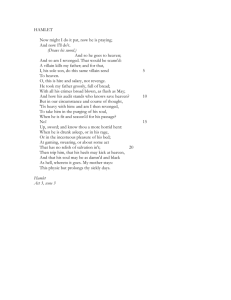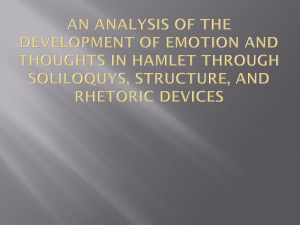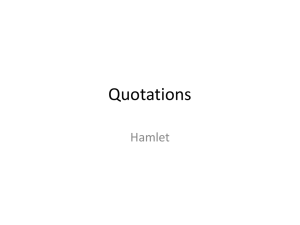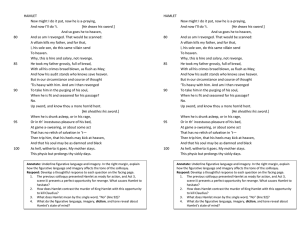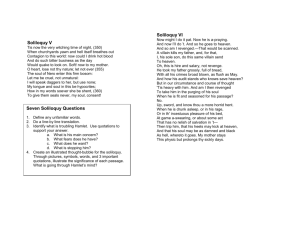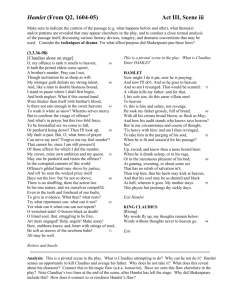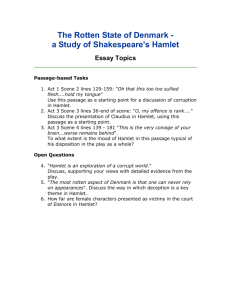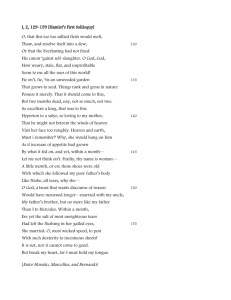Sturgis CS- English Classroom Activity
advertisement
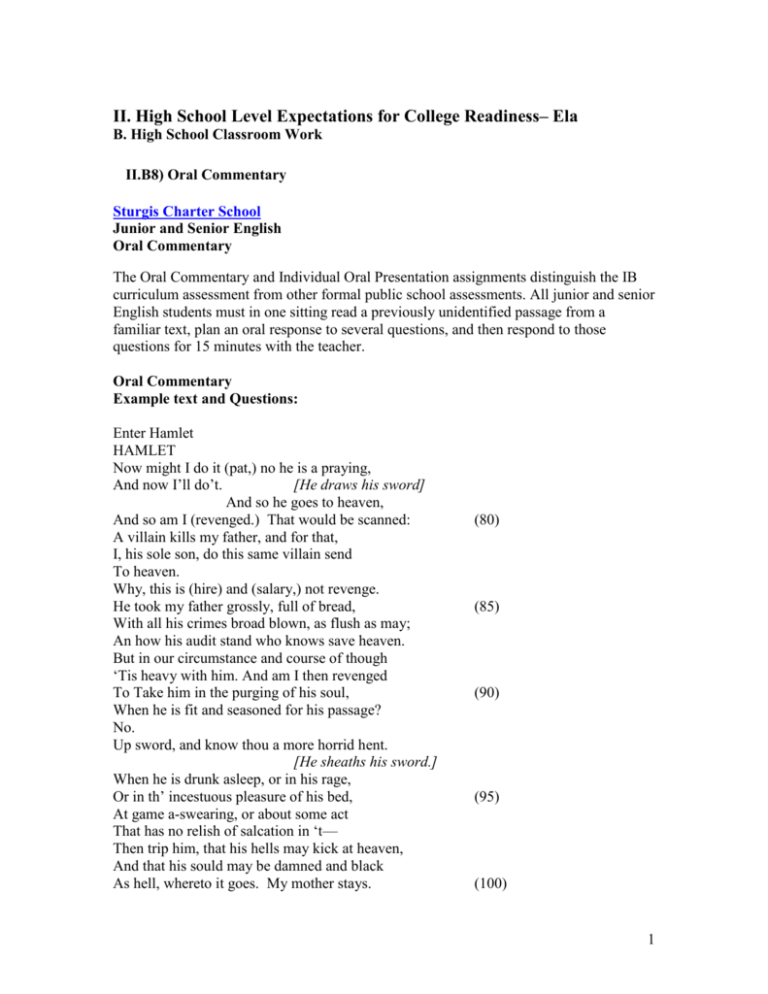
II. High School Level Expectations for College Readiness– Ela B. High School Classroom Work II.B8) Oral Commentary Sturgis Charter School Junior and Senior English Oral Commentary The Oral Commentary and Individual Oral Presentation assignments distinguish the IB curriculum assessment from other formal public school assessments. All junior and senior English students must in one sitting read a previously unidentified passage from a familiar text, plan an oral response to several questions, and then respond to those questions for 15 minutes with the teacher. Oral Commentary Example text and Questions: Enter Hamlet HAMLET Now might I do it (pat,) no he is a praying, And now I’ll do’t. [He draws his sword] And so he goes to heaven, And so am I (revenged.) That would be scanned: A villain kills my father, and for that, I, his sole son, do this same villain send To heaven. Why, this is (hire) and (salary,) not revenge. He took my father grossly, full of bread, With all his crimes broad blown, as flush as may; An how his audit stand who knows save heaven. But in our circumstance and course of though ‘Tis heavy with him. And am I then revenged To Take him in the purging of his soul, When he is fit and seasoned for his passage? No. Up sword, and know thou a more horrid hent. [He sheaths his sword.] When he is drunk asleep, or in his rage, Or in th’ incestuous pleasure of his bed, At game a-swearing, or about some act That has no relish of salcation in ‘t— Then trip him, that his hells may kick at heaven, And that his sould may be damned and black As hell, whereto it goes. My mother stays. (80) (85) (90) (95) (100) 1 This physic but prolongs thy sickly days. [Hamlet] exits. KING, [rising] My words fly up, my thoughts remain below; Words without thoughts never to heaven go. He Exits. 1. What words and images do you find most significant in this passage and why? 2. What does this passage reveal about Hamlet’s thoughts and how does he compare here with in other moments in the play? ELA Frameworks: Guiding Principles: 1,2,3,7 ELA Standards: 3.17: Deliver formal presentations for particular audiences using clear enunciation and appropriate organization, gestures, tone, and vocabulary. 8.33: Analyze patterns of imagery or symbolism and connect them to themes and/or tone and mood. 15.7: Evaluate how an author’s choice of words advances the theme or purpose of a work. For related information, see: Section IIA. High School Syllabi and Course Outlines II.A4) International Baccalaureate Syllabus Grade 12 & Section IIB. High School Classroom Work II.B9) Mock IB Exam & Section IIC. High School Writing II.C2) Academic Writing- Assignment and Student Work 2
